Being told your baby will need open heart surgery is scary and overwhelming. Whether you know months in advance or have very little notice, anxiety and fear can quickly take over. It may not be possible to ever feel completely ready to hand over your baby to be opened up, but I would like to at least try to help you prepare for your baby’s open heart surgery the best I can.
You have probably already read the information that can be found on hospital and medical websites. Those articles can be very helpful. But I would like to offer you some advice from a mama who’s been there. I would like to share with you, mom-to-mom, how to prepare for your baby’s open heart surgery.
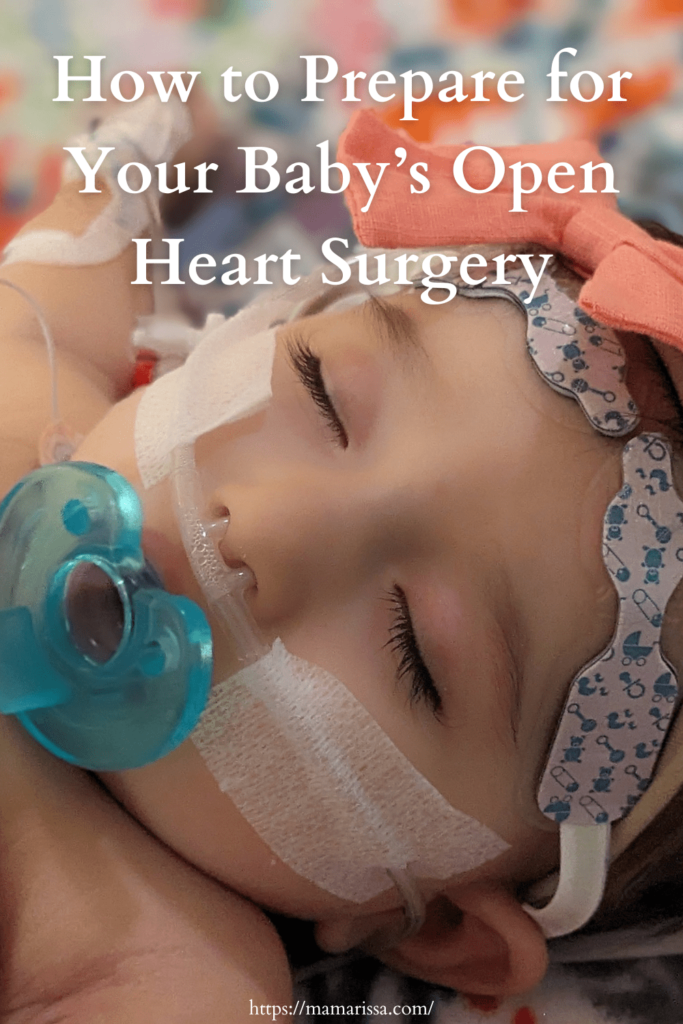
Of course, every baby’s heart needs are different. Some need more complicated procedures while others are straight-forward. I certainly cannot predict how your baby’s operation or recovery will go. But I can at least share with you what knowledge I have gained during the process of preparing for and recovering from my baby’s open heart surgery.
Please note that I am not a medical professional and nothing in this post should be taken as medical advice. Please speak with your baby’s cardiologist, surgeon or pediatrician with any concerns or questions you have about your baby’s health.
The Weeks Before Open Heart Surgery
1. Assume the Timing May Change
Something I learned during my 4 hospital stays with my baby: Preparing for your baby’s open heart surgery is completely unpredictable.
Even if your baby has a seemingly straight-forward case – such as a VSD (ventricular septal defect) that can be “easily” patched closed with open heart surgery – the path to getting the surgery can take unexpected turns.
In my daughter’s case, we were told from the beginning that her situation should be fairly simple. When she was born, the doctors told us they expected she would eventually struggle to gain weight and tire easily. They wanted her to get to a certain weight to be able to handle surgery better. But otherwise, they would plan on doing her repair as soon as it became necessary. Probably between 3-6 months old, we were told.
However, the first time she was admitted to the hospital for an NG tube (nasogastric tube) placement for weight issues, they quickly dismissed the idea of alternatively going ahead with her repair. It was too risky because she had recently had a virus. We were told that it is safest to wait 4-6 weeks after a virus (especially respiratory) to do open heart surgery.
The second time she was admitted for increased work of breathing was only a day after being discharged with the NG tube. So the recent virus was still too much of an issue to go ahead with surgery during that admission as well.
And then, on her third admission for vomiting and weight loss, the doctors changed the plan on us. They felt that her heart failure was too severe for just the large perimembranous VSD. They determined that her multiple smaller muscular VSDs must be contributing to her condition more than they originally realized. And since those VSDs could not be repaired on a baby, they decided it would be best to put on a pulmonary artery (PA) band to limit the excessive blood flow to her lungs instead of doing the repair.
So, after all of that, we still did not get her open heart surgery to do the repair. Her case was supposed to be straight-forward, but we still managed to have roadblocks, bumps and construction zones along the road.
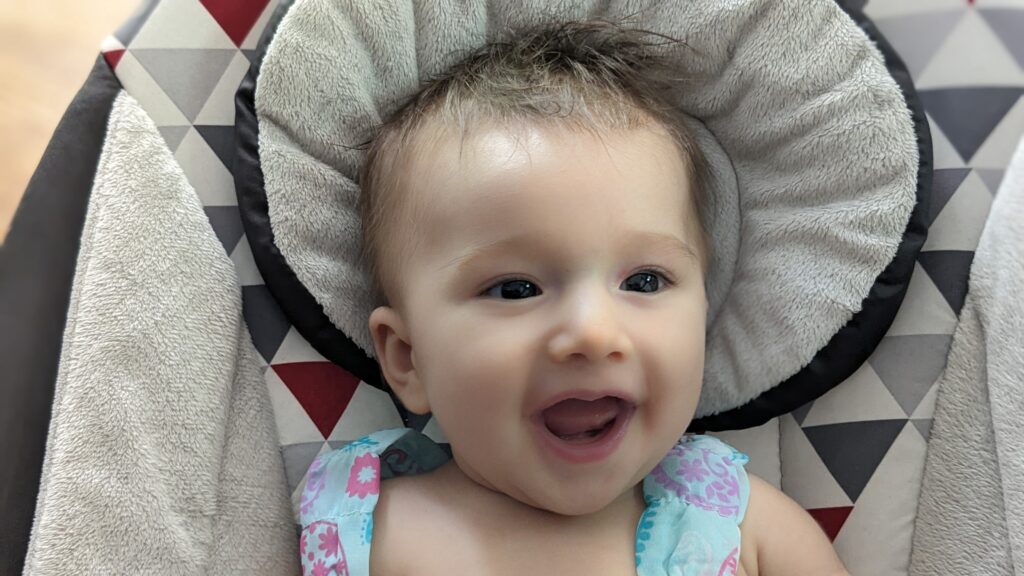
So my first advice to you is to expect that your anticipated timing for your baby’s open heart surgery may change based on unforeseen or underestimated factors. I know it’s hard, but try to be open-minded with your mindset on when and how things will happen.
2. Keep a Hospital Bag Packed
Although not as joyous an occasion, you’ll want to prepare a hospital bag in advance similar to when you were expecting your baby. I finally learned this after hospital admission number two and perfected it after admission number three.
Read my natural hospital birth story with this baby here.
In my experience, taking a cardiac baby to the ER is often a guarantee of admission. Whenever you take your baby to the ER, assume you’ll both be staying and pack accordingly. During my baby’s second admission, I had nothing to wear and had to rely on my husband to bring me clothes. Despite my detailed and precise directions, he somehow managed to bring me a strange assortment of maternity shirts, workout pants and nursing camis that were missing the bra padding. Trust me, it’s better to do your own packing.
After that unfortunate fashion experience, I began keeping a bag packed at all times, knowing it was entirely possible we would end up in the hospital again on any given day. I would highly recommend you do the same since cardiac babies can be unpredictable from one day to another. Even if you do not plan to live at the hospital with your baby, keep an overnight bag ready to go for those potential long nights in the ER prior to admission.
Scroll down and enter your email address to get access to my free emergency hospital packing list created based off of my experience intermittently living in the hospital.
The Day Before Open Heart Surgery
1. Be Flexible
Surgery dates are never guaranteed. Even when you are told at the last minute that baby is having surgery the next day, the surgery date can still change. And I know this not only from my own experience in the hospital but from the numerous stories of other parents who’s heart babies were mostly outpatient.
I hate to say it, but it’s actually pretty common for open heart surgeries to be rescheduled, last minute or otherwise. Being inpatient helped to push us closer to the front of the line, but even then, there are no guarantees.
With my daughter’s second surgery (her open heart surgery when she had her repair), she was inpatient for the fourth time due to weight loss. We were just waiting for a surgery date to open up.
All of a sudden, we were told on a Sunday afternoon that there was a 50/50 chance she would be having surgery Monday morning. They were trying to decide if a couple of the kids who were scheduled for surgery on Monday would be well enough to have their surgeries. If not, we were up.
But we wouldn’t know for sure until Monday morning. So we had to go through all of the pre-op tests and procedures (EKG, echocardiogram, x-ray, blood work, urine sample and signing consents) knowing there was a good possibility she would not actually be having the surgery that day.
We did not end up knowing for sure whether she was having surgery until about an hour before they took her back Monday morning. But we had to be willing to do all the necessary things to be prepared for surgery even if it didn’t end up working out.
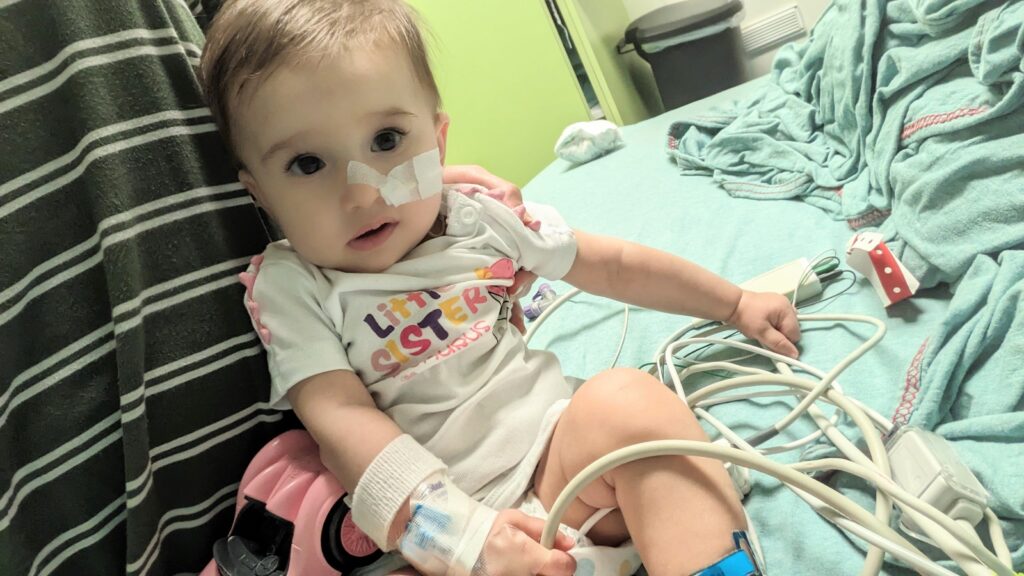
The obvious takeaway here is that you have to be flexible, knowing that the timing of a lot of things in the hospital is incredibly unpredictable and mostly uncontrollable. You have to remember, there are a lot of unpredictably sick cardiac babies along with yours, and their surgeries all have to be prioritized in order of necessity and safety for each child, sometimes on a day-to-day basis.
2. Love on Your Baby
Loving on our babies is pretty instinctual for us mamas. Loving on our babies right before surgery is equally as instinctual. You don’t need someone to tell you to love on your little one the day before surgery.
But you might need someone to assure you that loving on your baby a little extra the day before surgery is more for you than baby. Baby doesn’t know what is coming. She is blissfully unaware of the fearful possibilities we worry about as parents. And she is also already fully aware of how much she is loved by you.
She does not need you to hug her five extra times or hold her longer or kiss her over and over to be convinced of your love. She was convinced by those 9 months of connection to your life-sustaining body. She was convinced by your labor of love to bring her safely to your arms. She was convinced by your cuddles every moment of her little life. She was convinced by your desire to meet all of her needs day and night.
But you go ahead and give her those extra hugs and kisses. You keep on holding her while she naps the day before surgery. Because you need to for you. And you will be glad you did.
The Day of Open Heart Surgery
1. Stay Occupied
You know, before both of my baby’s surgeries, we were told that it would be the longest few hours of our life as we waited for her to come out of surgery. But, to be honest, the time flew by with the first surgery and went pretty quickly with the second.
The reason is because my husband and I stayed busy on surgery day both times. After we handed over our sleepy baby, I had to shower, pump breast milk, pack up all my things to move out of our inpatient room and eat breakfast.
For the time that was left after all of that was done, my husband and I took advantage of the incredibly rare time without any kids to talk in between completing other various necessary tasks (eating lunch, arranging for a sleeping room in the hospital for my husband, toting all my bags from our pre-surgery inpatient room to the car and stashing necessary items in a locker).
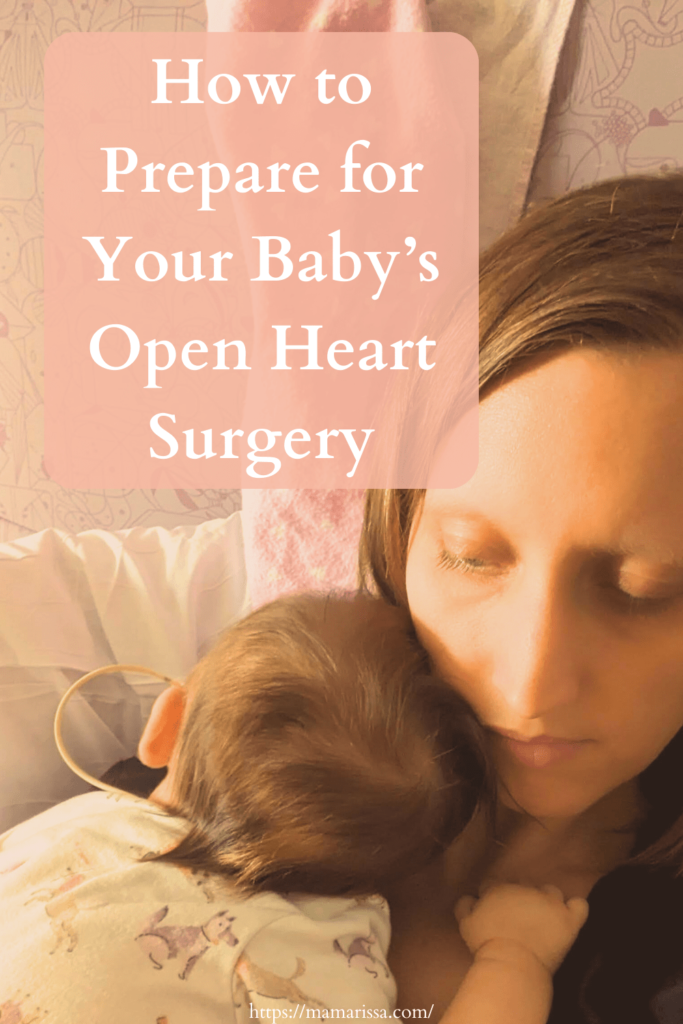
Personally, surgery day for me has always been pretty busy and the time has consequently gone by quickly. I highly recommend staying busy as much as possible on surgery day. It will help to keep the anxiety and fear at bay.
2. Stay Close By
However, I will caution you to stay close by as much as possible while your baby is in open heart surgery. This way, when the surgeon is finished and ready to come out to talk to you, you are available to meet him on time.
This might sound obvious but … we almost were not around to talk to the surgeon after my baby’s first surgery. It sounds awful and I felt like it must have looked like I didn’t care. But the fact is, we needed to go to Wal-Mart while my baby was in surgery because I had to get a few essential items. I had been living at the hospital and my husband was not able to come very often to bring me things from home. It was my only chance during the course of those 3 1/2 weeks to pick out my own necessary things.
And, honestly, that was a great distraction. But by the time we were pulling back into the hospital parking garage, the surgeon was headed to the ICU waiting room to talk to us. So trust me, you will want to try to stay close by while your baby is in surgery. Try not to leave the hospital if possible.
The Days After Open Heart Surgery
1. Hold onto Positive Moments
Seeing your baby for the first time in the CICU (Cardiac Intensive Care Unit) may be very hard … or it might not be. It depends on your baby’s condition and whether this is your first experience seeing your baby after surgery and/or anesthesia.
My baby’s first surgery was not open heart and she was not put on the heart-lung bypass machine, but they still had to open up her chest. She had not had anything repaired, but had a temporary band put on the pulmonary artery to reduce the extra fluid circulating to her lungs.
When I first saw her after surgery, she was unconscious, swollen, and did not look like her normal happy self. She had a breathing tube coming out of her mouth and a machine was breathing for her (the ventilator). She had some kind of electrodes stuck to her forehead which I was later told measure how much oxygen is in her blood after it leaves her brain.
She had a central IV line coming out of her neck and an arterial IV line coming out of her groin. She had a catheter draining urine into a box on a floor. She had a chest tube draining accumulated blood from the surgery out of her chest. She had wires coming out of her chest to restart her heart in the event of a post-operative emergency. And she had a thin, red line extending down the length of her chest covered by a clear bandage.
She was wrapped up with her arms pinned to her sides like a mummy and there were about ten million monitors and medication injection machines surrounding her bed. I’ll be honest, it was not easy to see her like that. I don’t even like looking at the picture I have of her like that.
I’ll be even more honest. It was so hard to see her that way that a thought popped into my head that maybe I should leave so that I wouldn’t have to watch her in that state. But in the next instant, I knew I could not leave her. She needed to know that I would be there for her. With her.
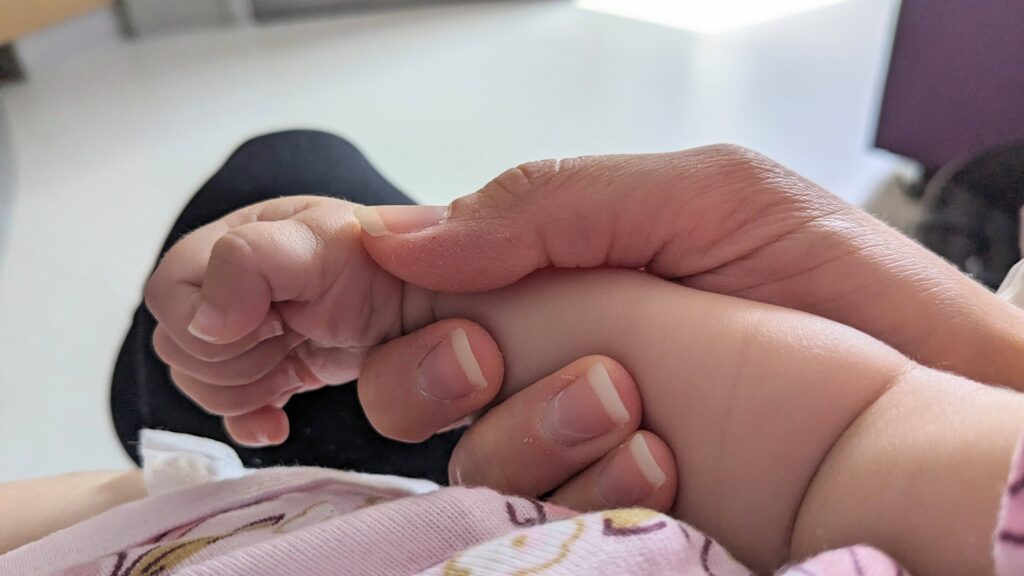
I could have left. A lot of parents do. Perhaps sometimes because they have jobs or other children that they can’t afford to be away from. Perhaps sometimes because it is too hard to watch what their child is going through. But I am so glad that I could and did stay with her. I don’t regret a single sleepless moment I spent beside that CICU bed.
Read why my baby has holes in her heart here.
Her condition after this first surgery was up and down for the first couple of days. There were some frightening moments when no one knew what was happening. Like when her heart rate suddenly dropped repeatedly throughout the day. Alarms would go off and nurses would rush over only to see it go back up on its own. They eventually determined the breathing tube was hitting her vagus nerve and causing her heart rate to drop.
And then there were the high fevers. We would watch the number on the screen climb as her catheter constantly measured her temperature. The nurse would place a fan at the head of her bed and mop her head with cool cloths until the fever went down. And then it would start to climb again a couple hours later. They ended up doing a viral swab the day after surgery and it came back positive for rhino virus. The fevers were likely due to her body trying to simultaneously recover from surgery and fight off a virus.
There were other concerning moments too. Like the fact that she wasn’t peeing much the first couple of days. And the fact that she was clearly not ready to breathe on her own for the first 24 hours which meant they could not take the breathing tube out. That only added to her discomfort. And mine. It’s rather scary to be told that your baby isn’t capable of breathing on her own, even if it is temporary.
And of course, there were the moments of her distress when I could do very little to help her beyond asking the nurse if it was time for another pain killer or trying to gently rock her in the crib. One night she was very restless and was in a constant state of thrashing half-sleep the majority of the night. Fortunately, she had an amazing and kind nurse who did everything in his power to make her comfortable.
But in the midst of the stress, anxiety and fear of those difficult moments, there were the positive moments that kept me steady. The fact that her heart rate would correct itself. The fact that her fevers could be brought down for a while. The fact that she eventually started to pee. The fact that they could take the breathing tube out a day and a half after surgery. The fact that she was gradually able to wake up more and more.
But every surgery can be a different recovery depending on the circumstances. After my baby’s second surgery – the one where she actually had her large VSD repaired and she was put on the heart-lung bypass machine – my husband and I were pleasantly surprised to find that she looked so much better after surgery than she had after her first surgery.
She was not swollen. She looked more like herself. She was extubated roughly twelve hours after surgery. And she recovered so much quicker and easier with few, if any, scary moments. I am sure this was all due to the fact that she actually had the main part of her heart problem fixed and the fact that she was not sick during and after surgery this time. She was even wanting to play within 24 hours of having her heart operated on!
There is no way to predict how your baby’s recovery will go. I heard various stories from the cardiac moms at the hospital. But if you hold on to the positive moments, it will help to steady you. It will remind you that your baby is strong and you can be too.
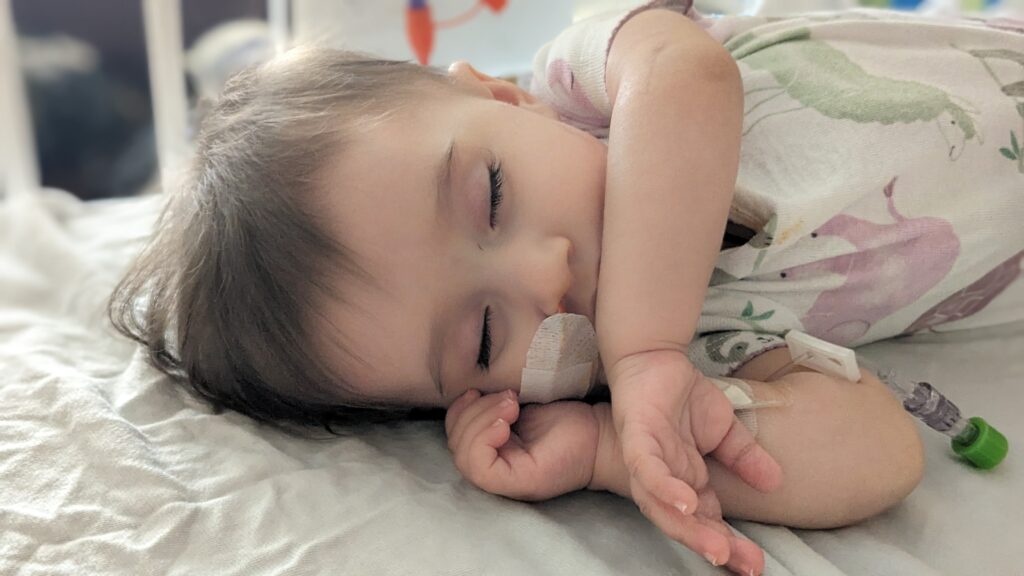
2. Bring Hearty Snacks
This suggestion for preparing for you baby’s open heart surgery is practical and so important! Make sure to keep filling, healthy snacks with you. There may be times when you do not want to leave your baby’s side to go get lunch but you need the sustenance.
I was not prepared in this way for my baby’s first surgery and I nearly starved. Aside from when I was required to leave the CICU for an hour in the morning and evening during shift change, I was not willing to leave my baby’s side to go eat a meal when her condition was so unpredictable those first couple of days.
For her second surgery, I was prepared. I brought RX Bars (healthy and filling) and Larabars (another healthy favorite) with me for whenever I did not want to leave her to eat. I highly recommend you do the same.
With the emotional drain comes the physical hardship of being in the CICU with your child. If you stay by his bed during the nights, you likely will not sleep much. If things are stressful or concerning with your child, you will go hungry to stay by his side. Help yourself ahead of time by getting those healthy snacks to keep with you.
3. Ask Questions
In those first couple of days after surgery, there is a lot going on with your baby. There are frequently changing doses and types of medications being administered. There are multiple numbers being monitored on the screens. There are urgent, important and unimportant alarms going off.
If you are not already familiar with this atmosphere, it will be overwhelming at first. Do not hesitate to ask questions of the nurses. At my baby’s hospital, most of the CICU nurses were fantastic at telling me what was going on and keeping me in the loop as they cared for her. Even then, I had plenty of questions and they were great at answering them.
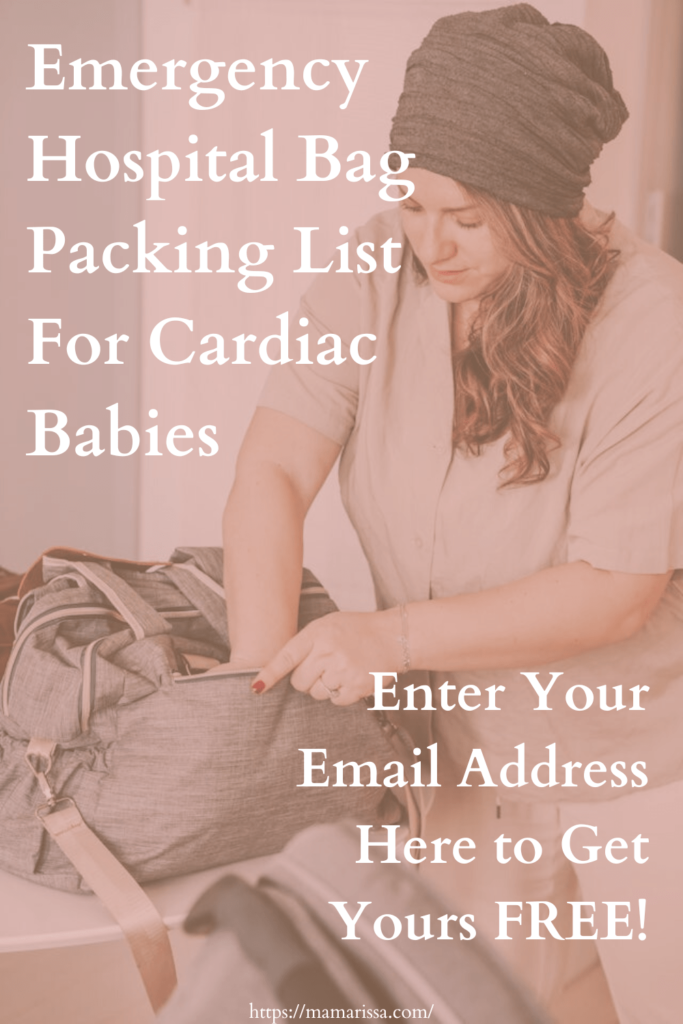
Even if your baby’s nurses are not as openly informative as mine generally were, you need to ask questions to make sure you know what is going on. They may know what they are doing in their jobs, but you are still mom. You always have a right to know what is going on with your child.
4. Patiently Wait for the Smiles
One of the hardest parts about the recovery after open heart surgery is not getting to see your baby smile for several days. I was not surprised that my baby did not smile for a while even once she was fully conscious. My sister had told me about how her baby had not smiled for a while after some portions of her cancer treatment that required anesthesia.
It is normal. But it’s hard. Even once my daughter was conscious and began to show an interest in playing, she would not smile at first. She would play but her face remained serious. It took several days for her first tentative little smiles to appear after surgery. They were small and infrequent at first and then they would grow bigger and more often each day.
It helps to know ahead of time that this will happen. Don’t worry. You will see your baby’s smiles again soon!
The Months After Open Heart Surgery
1. Get Recommended Therapies
After open heart surgery, your baby may be prescribed physical therapy and possibly feeding therapy (which is disguised in the category of “speech therapy”). From what I have been told, at least physical therapy is generally a default recommendation after open heart surgery at the children’s hospital where my daughter had her surgeries. But ask your baby’s surgeon or doctor about physical and feeding therapy if they are not automatically prescribed.
My baby was set back on her milestones by at least a month with each surgery. At about 8 1/2 months old, her physical therapist mentioned that she could see how hard it was for my baby to support her weight with her arms and shoulders, so she avoided doing it. This was partially a result of having her chest cut open and partially a result of the down time after each surgery, resulting in a weakening of those muscles. Her physical therapist also mentioned that she has somewhat low muscle tone which is apparently common with cardiac babies because of poor perfusion.
And as for feeding therapy, most cardiac babies have some level of feeding aversion or inability to feed effectively due to their overworked heart. After a baby’s open heart surgery to repair the heart, feeding should physiologically become easier. For some babies, there will be no feeding issues after they have their repair. However, for some babies, the results of the feeding problems experienced prior to open heart surgery can be longer lasting than the heart defect itself.
Read what it’s like on the other side of baby’s VSD repair here.
For one thing, cardiac babies may take longer to get used to tastes and textures of solid foods because of set-backs from being hospitalized and the struggles they have had with feeding prior to surgery. Cardiac babies also often have tummy issues from poor perfusion that can interfere with their desire and ability to eat.
And if your baby had a feeding tube before surgery, it can often take time to wean off of it, depending on your baby’s particular situation. If your baby is significantly underweight, she may need to continue getting feeds through the tube until she is back on her growth curve. However, if your baby takes a bottle and has no or moderate weight issues, she might not need the tube anymore after surgery.
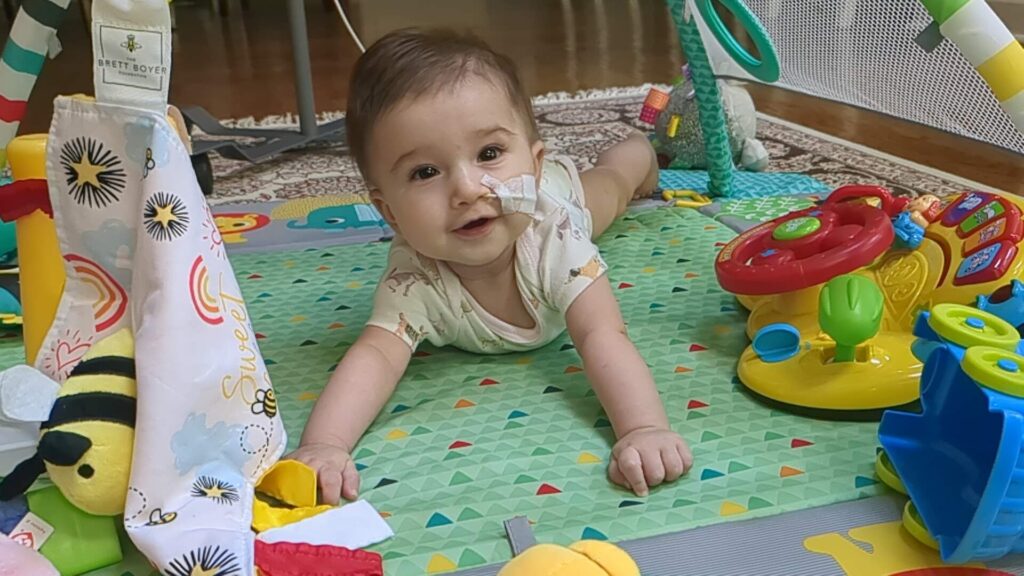
For my baby, weaning off of the tube continues to be a process even five months after her repair. While she fortunately did not lose her oral skills, she has never taken a bottle and can no longer get enough breast milk from me.
So we are working in feeding therapy on getting her used to texture and trying various kinds of foods and ways of eating. We are also working on learning to drink from a cup, bottle and spoon – which she is make progress with now!
In all reality, I mostly do these things at home. But her feeding therapist meets with us once a week to discuss where she’s at and try new tools or methods to help her progress.
Honestly, I feel like the therapies are helpful for me as much as my baby. Even when I don’t feel like she is progressing with therapy, I still receive valuable information that helps me to know what is normal and okay for my heart baby. That by itself is enormously helpful. Please don’t skip the therapies if you can get them!
2. Be Patient with Delayed Progress
As I mentioned, my baby is behind where she would have otherwise been with her milestones as a result of having two major surgeries. It is hard as a mama to see your baby set back like that. But it is all a part of having a heart baby. And knowing this ahead of time is part of preparing for your baby’s open heart surgery.
But actually, having my baby in physical therapy has been very educational for me in learning about baby development in general. While most of us mamas tend to be highly competitive about how soon our babies sit up, crawl, walk, etc., my daughter’s physical therapist has helped me to understand just how important it is for each baby to do these things at their appropriate time and for an appropriate length of time.
A few months ago, at 9 months old, we were working on getting my heart baby to crawl on hands and knees. She could army crawl on her belly and she clearly wanted to stand up and walk. But her physical therapist kept emphasizing how important it was that she learn to crawl on hands and knees and not just skip to standing and walking.
Without the guidance of the therapist, I would probably have been encouraging her to stand and walk at that point. But the therapist instructed us to not encourage those things intentionally until after she was crawling on hands and knees.
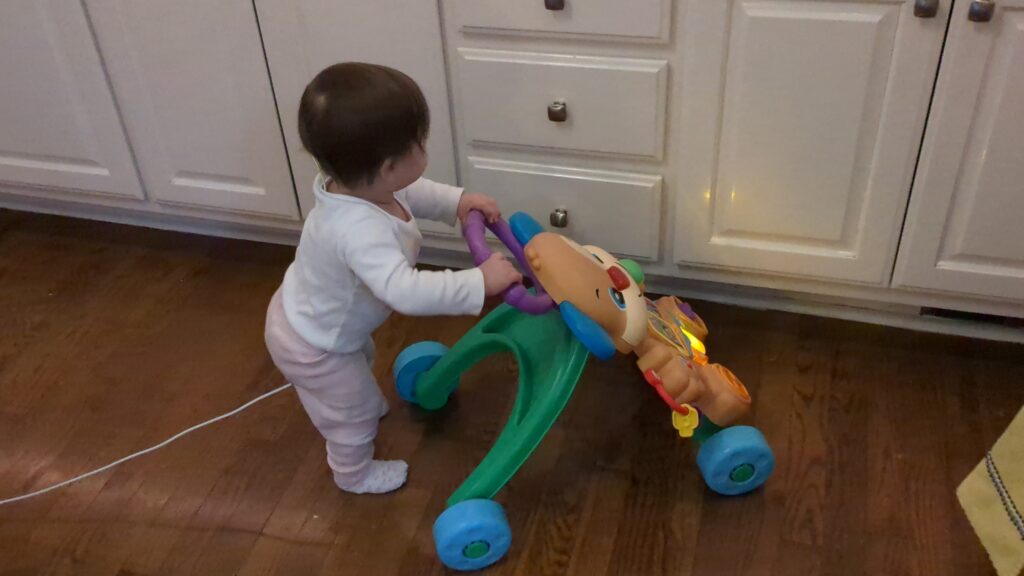
She mentioned that falling to strengthen her weakened arms, shoulders and chest right now could lead to trouble writing and focusing in school later on due to those muscles tiring easily. Having those chest muscles cut through during open heart surgery could potentially put her at a disadvantage in upper body strength if they are not given the proper attention after recovery.
Apparently, crawling is important for several areas of development that can have long-lasting effects. My daughter’s physical therapist informed me of multiple ways in which she could be affected in the future by not learning to crawl. She told me that, in addition to upper body strength, her vision, learning abilities and gait could be impacted by whether or not she crawls on hands and knees.
Interestingly, this study has demonstrated that there is a link between children who never crawl and later diagnosis of ADHD. This pediatric therapy website explains the connection well if you would like to learn more. This study indicates that there is also a link between shoulder instability and not crawling as an infant. It should be noted, however, that a causal link in both of these studies has not been determined.
But ultimately, from my own research (as well as reassurances from the therapist), while there are good reasons to encourage crawling, non-crawlers are not doomed to a future of disability. It is simply beneficial to do your best to help baby re-strengthen his body after the physical trauma of open heart surgery.
I cannot tell you how proud it made me and how rewarding it was for my baby when she finally crawled across the room on her hands and knees at 10 months old! It didn’t matter to me at all anymore how old she was or how quickly she learned it. I was just so relieved she was getting stronger and proud of her for working until she mastered it
So while the delayed progress of your baby meeting her milestones may temporarily hurt your mama pride a little, try not to focus on the age at which she learns new skills. It does not matter in the long run how long she took to start crawling. But it could matter in the long run if you push her to skip past that skill.
Have patience, Mama. Your baby has been through a lot and has nothing to prove. She’s already a tough little warrior.
3. Be Patient with Residual Symptoms
Once again, I learned this piece of advise on how to prepare for your baby’s open heart surgery from experience. Based on what we were told, my baby’s heart failure symptoms should have resolved within days or weeks of her repair. And some of them did. Her weight began to pick up within a week. And her breathing began to show improvement probably within days (it’s hard to know exactly when it improved as a result of the repair since they kept her on super heavy diuretics until over a week after surgery).
But some things took more time. Primarily, the vomiting. Although her tummy was clearly somewhat more comfortable within weeks, she continued to have regular vomiting (lessened somewhat by a continuous tube feed regimen that was initiated a few days before her repair). It was only a couple months ago, somewhere between 3 and 4 months post-op, that I suddenly realized she was no longer vomiting at all.
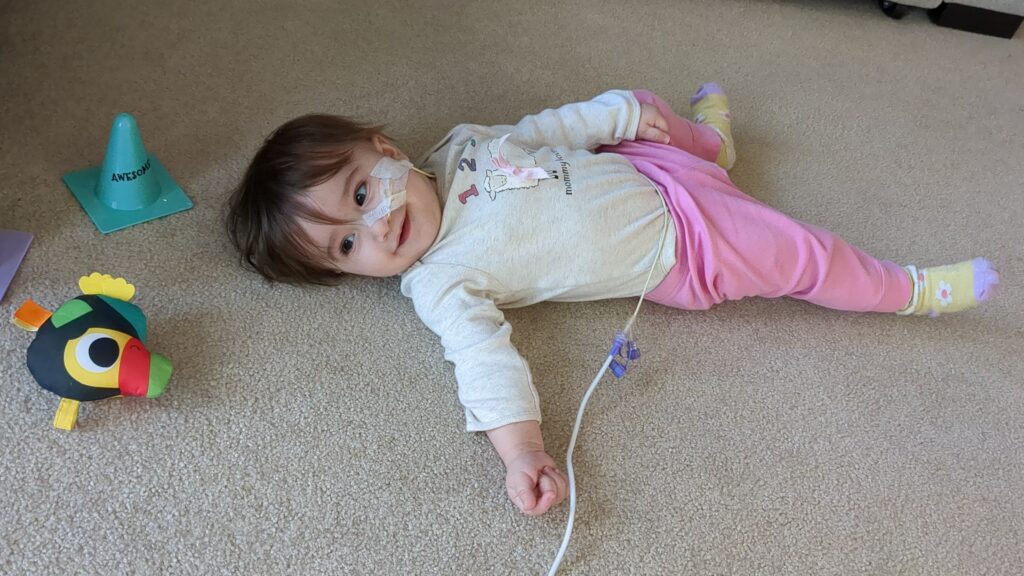
I had been warned by her GI doctor in the hospital that it would take time for her tummy to heal after being short on blood supply for so long. But her outpatient cardiologist was surprised her vomiting had not resolved a month after her repair and it was discouraging. We began to think there were other issues going on with her tummy. I could not even condense her tube feed rate from 35 to 38 milliliters (30 milliliters is an ounce for reference) an hour without causing her to vomit.
But the GI doctor from the hospital was right. She just needed more time. A couple of months ago, we were able to condense her continuous feeds much quicker. And then, due to an unfortunate tube situation, we were forced to suddenly switch to bolus feeds. And she did great with the change! So we are now primarily on bolus feeds.
Patience is key with a lot of things surrounding your baby’s open heart surgery, Mama. Even after the surgery is over.
4. Massage the Scar
Something that I did not realize following my baby’s open heart surgery is how important scar massage is. I was given a hand-out in the hospital on how to do it but I thought it was just to reduce the appearance of the scar.
It wasn’t until I told my baby’s feeding therapist about her lack of scar massage tolerance that I learned it is about more than appearance. Her feeding therapist told me it’s really important to do the scar massage to prevent collagen from building up and making it stiff. She said that could make the skin less flexible and it could become uncomfortable or limit her range of motion.
Her feeding therapist suggested I try to do scar massage for one minute ten times a day instead of trying to do 10 minutes all at once. She recommended I do it randomly throughout the day even if I don’t have lotion – to just rub her chest through her shirt or do it every time I change her diaper.
Knowing that it could have negative consequences if I don’t, I have been trying to be more diligent about it. It’s not easy on a squirmy baby who fights it most of the time. Just the same, it’s important to do as much as you can.
I have asked several doctors, nurses, etc. about the best topical solution to use for the scar. There are a number of things you can try (scar strips, vitamin E, Moderma cream). But most of the answers I have gotten are that it doesn’t really matter what you use. I’ve been told that the massage itself is more impactful than what you put on it.
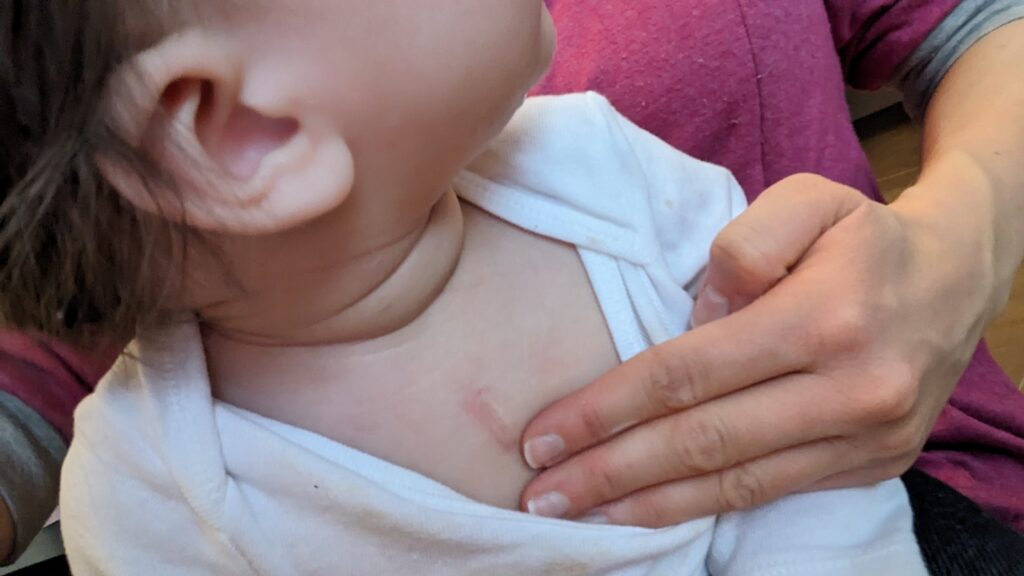
I just use the baby lotions I have on hand. I have some Hello Bello baby lotion in one of her diaper changing locations. I also have Babyganics lotion in her other diaper changing location. I like both of them and the ones I have are both fragrance free.
You could also just use coconut oil. I have done that at times as well. But I generally use the lotions because they absorb quickly without leaving any oiliness behind to stain her clothes.
But of course, you must wait until the incision is completely healed before starting any massage. Ask your child’s cardiologist to approve that the incision is healed enough to start massage if you are unsure.
You Cannot Be Completely Prepared for Your Baby’s Open Heart Surgery
Despite the title of this post, I can’t ignore an obvious fact: No one is ever going to feel totally prepared to hand their baby over to have his heart cut open, temporarily stopped and operated on.
Along with that, no matter how much reading you do and no matter how many questions you ask the doctors, it is impossible to know every detail of how this whole process will go for your baby. And I’m not just talking about the surgery itself. The recovery and residual issues to be dealt with afterwards are a continuing part of the heart baby journey.
Before my baby went into heart failure, based on the information we were told by doctors, I did not anticipate life returning to anything but normal within a few weeks after surgery. But things just didn’t go at all how we originally expected for a number of reasons.
Honestly, the best way you can prepare for your baby’s open heart surgery is to take it one step at a time. Don’t borrow tomorrow’s trouble today. You don’t have to worry about how to pick up your baby post-op when the surgery date is still a month away. You don’t have to be anxious about going home when your baby hasn’t even had surgery yet. You don’t have to wonder if you will be able to handle whatever medication regimen baby will go home on when doctors haven’t even mentioned discharge yet.
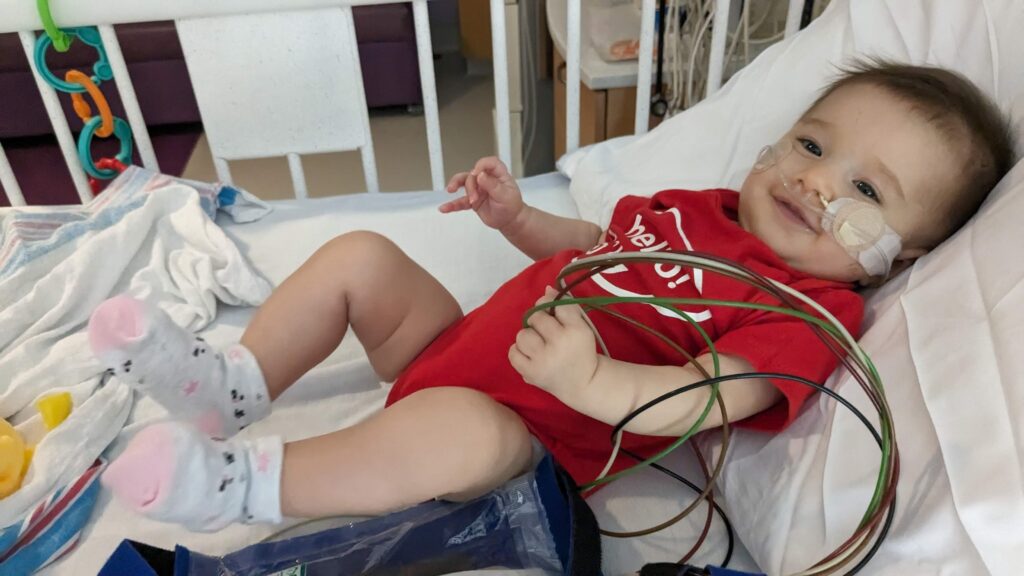
When I was trying to prepare for my baby’s open heart surgery, I felt like I needed to figure everything out ahead of time. But I learned that it doesn’t work that way. You learn as you go. And that is for the best.
It is good to prepare, but don’t stress about the things you can’t figure out yet. Trust me, each situation will come to you when you need it and you will be able to do it. One step at a time, Mama. One baby step at a time for you both.
Hey Mama, if you find my blog posts helpful, would you help support this blog by making Amazon purchases through the links on this page? It will not cost you any extra but the commissions I receive as an Amazon Affiliate help to cover the costs of operating this blog so that I can keep it running ad-free. Thank you so much for your support. You are literally the reason this blog was started and the fuel that motivates me to keep it going!

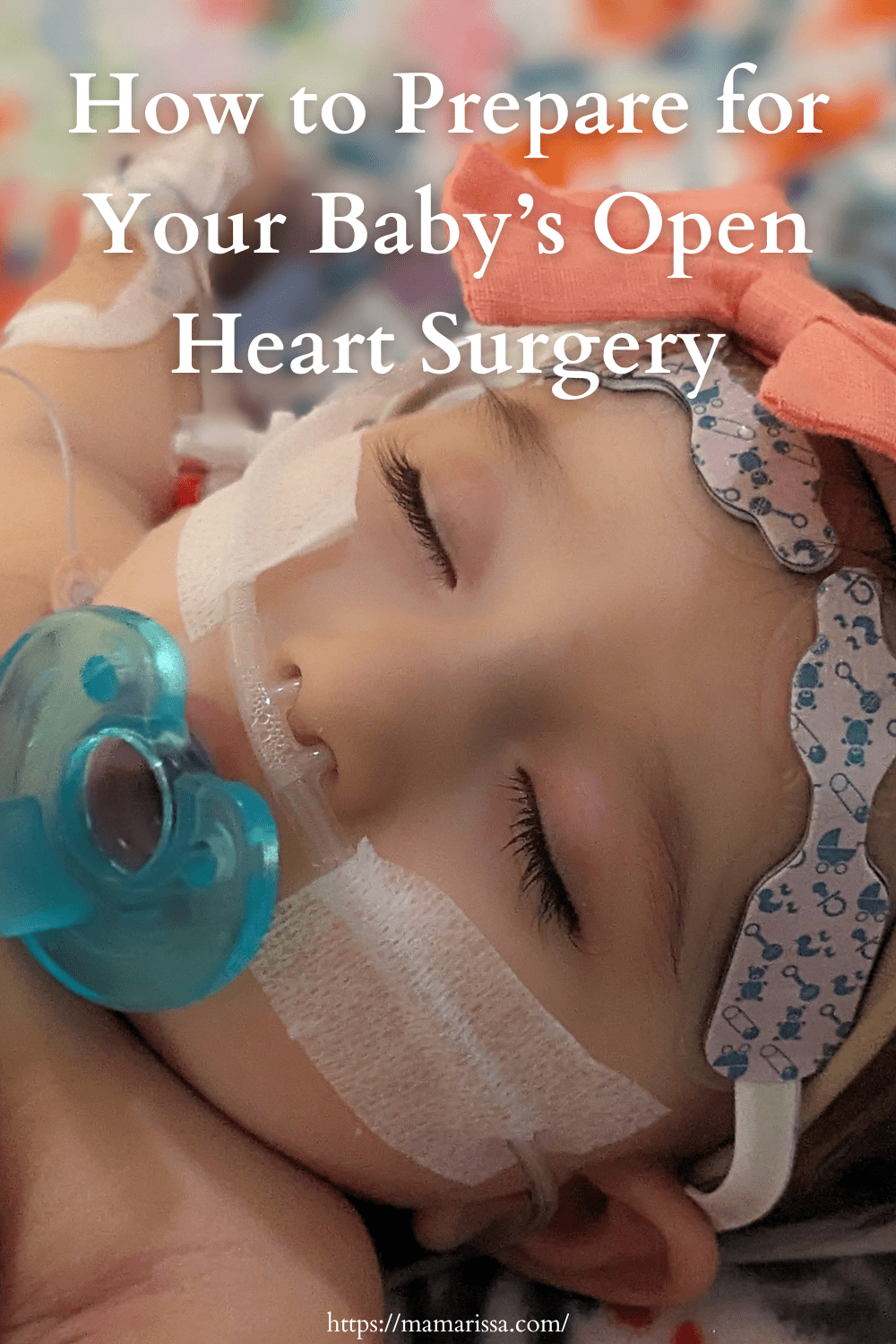

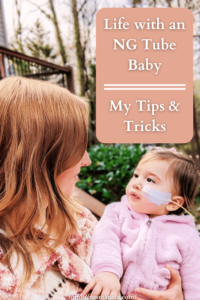



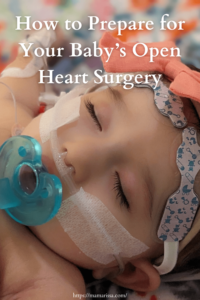
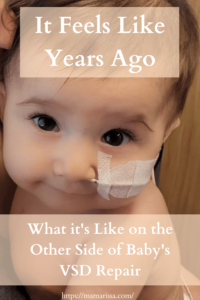
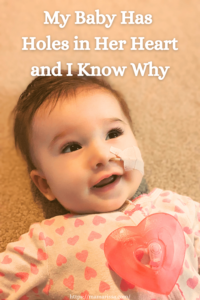
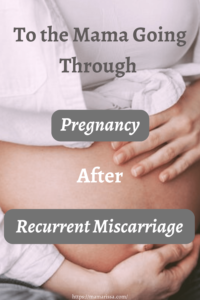

Leave a Reply